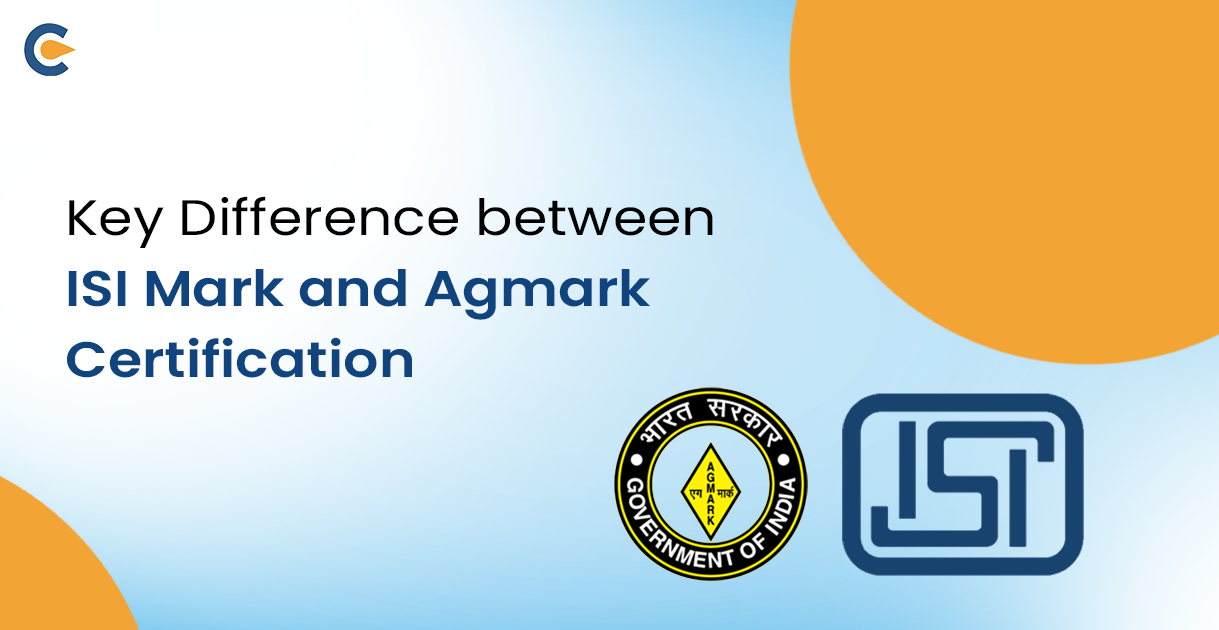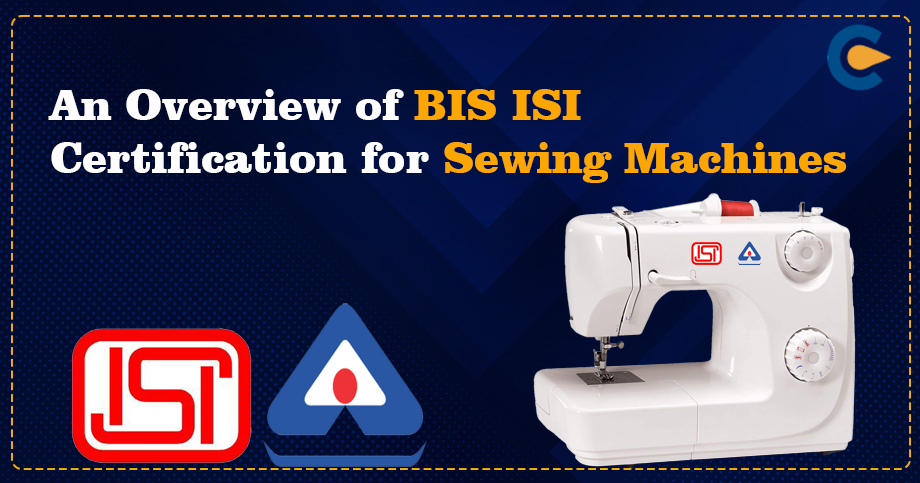The ISI Mark and Agmark are the marks that make the products authentic and genuine. The seller can gain the trust of the consumers, and the consumer gets a trustworthy product for their use. They establish that the product has met the quality mark and is safe to use. ISI Mark gives certification to consumer and industrial products, while Agmark gives certification to agricultural produce in the country. ISI Mark and Agmark certification is necessary for the products to gain the trust of their quality in the market as well as meet the safety guidelines of the products set by the issuing statutory body.
ISI Mark
The Bureau of Indian Standards (BIS) is responsible for providing ISI (Indian Standards Institute) Marks. BIS is a National Standard Body that assigns quality marks to the products. BIS issues ISI Mark to the consumer and industrial products. It is also issued to manufactured products, building materials (like cement, steel, etc), electrical appliances, LPG Cylinders, Cooking Oil, Packaged Drinking Water, automobile parts, etc. It signifies the safety and quality of the material and is only provided to the products after they go through the necessary steps of safety. When there is assurance of the safety of products, this mark is issued by the BIS.
Agmark
Agmark’s scope is limited to agricultural yields. It provides certification to the agricultural products with their quality. Department of Agriculture, Directorate of Marketing and Inspection, Cooperation, and Farmers Welfare are the statutory bodies responsible for the administration of Agmark under the Ministry of Agriculture & Farmers Welfare and the Government of India.
Cereal, pulses, grains, edible oils, and other kinds of agricultural yields require Agmark for the quality and grade of products. They are used to provide the product’s authenticity and quality clearance. It establishes the grade of the products and describes if they are of the best quality, medium, or low quality. This helps curb unfair trade practices and eventually helps farmers produce better-quality products. The better the quality, the higher the price of the product, and hence, every product is divided into grade systems where the cost would be different for higher quality products. It helps the poor section of society as well who cannot afford the best quality of products, and with price differentiation, they can get the products at less price than eventually what it would have been.
Difference Between ISI Mark and Agmark certification
While looking at the application of these marks, there are a lot of differences between ISI Mark and Agmark certification. ISI Mark and Agmark cover a range of products that are different from each other. The difference between ISI Mark and Agmark certification –
Scope
The ISI Mark covers a wide range of products ranging from consumer goods to manufacturing goods to industrial goods. It ensures the safety of products and maintains the quality standards set by the regulatory authority through the set quality measures. There can be no certification given to the products with inferior quality than what is expected from them.
Agmark is responsible for the quality assurance of the agricultural produce only. The Agmark covers a specific range of goods, and it marks the goods according to the grades to which they belong. The inferior quality of products can be put in the lower grades.
Statutory Authority
The Bureau of Indian Standards is responsible for issuing the ISI Mark. It sets the parameters in which the product has to lie to be sold in the market.
Department of Agriculture, Directorate of Marketing and Inspection, Cooperation, and Farmers Welfare are the statutory bodies responsible for the administration of Agmark under the Ministry of Agriculture & Farmers Welfare and the Government of India.
Application
The ISI Mark is applied to a wide range of goods. It includes manufacturing goods, consumer products, industrial products such as cement and steel, edible oil, LPG Cylinders, electrical appliances, etc. These cover a wide range of businessmen, manufacturers, etc.
The Agmark is applied only to agricultural yields and is directed towards farmers only.
Standards
The BIS sets the quality measures for industries and the applicable manufacturers to comply to get the ISI Mark for their respective products. Without meeting such safety and quality criteria, the BIS won’t issue the ISI Mark to the defaulting products.
Agmark, on the other hand, is responsible for maintaining the minimum quality of the products to be sold on the market. It provides grades based on the quality of agricultural yields, and the pricing of the product is based on such grades. It also provides information about the origin of the product that establishes the authenticity of that product.
Information Regarding Product
The ISI Mark provides information about the safety, authenticity, and quality of the product being sold in the market.
The Agmark is responsible for providing information on the safety and quality grade of the agricultural yield.
Recognition of ISI Mark and Agmark
The ISI Mark holds outstanding recognition among the consumers of the related products. Consumers buy products with the ISI Mark only, which gives them satisfaction about the quality and safety of the product. ISI Mark is necessary for the products; hence, the customers, more often than not, look for that mark in the products that they are purchasing.
Agmark, on the other hand, doesn’t hold such importance in the market. The farmers don’t need to get the Agmark to sell their products in the market. It is an additional assurance that they can get for their product, but it is not mandatory to get the Agmark for selling agricultural products like cereals, wheat, pulses, edible oil, etc.
Conclusion
The ISI Mark and Agmark certification provides consumers with a sense of security and safety for the products. They are more active while noticing these marks in the products before buying them. While ISI Mark is necessary for the products, the Agmark is not prevalent in the market, but by getting the Agmark on the products, their sale can be increased since it will provide authenticity to the products. Both these marks aim to ensure the quality of the products to its customers. The ISI Mark covers a wide range of products, while Agmark is constrained to agriculture products only.
Corpbiz can help you to get the ISI Mark and Agmark certification while avoiding confusion. We will help you differentiate between the needs of your product and the applicability of the mark in your product. We have individuals who are experts in these services and can help you get one for the product in a very short time without much hassle.
Frequently Asked Questions
How are ISI and FSSAI certifications different?
The ISI and FSSAI certifications are different as the FSSAI certificate is only given to food products while the ISI certificate covers a wide range of products such as industrial products, manufacturing products, building materials (like cement, steel, etc), electrical appliances, LPG Cylinders, Cooking Oil, Packaged Drinking Water, automobile parts, etc.
Why is the Agmark certificate issued?
The Agmark or Agricultural Mark is issued to ensure the quality, safety, and grade of the agricultural products.
What is the significance of Hallmarks?
Just like the ISI Mark and Agmark, the Hallmarks are also used to provide certification for the quality of the products. Hallmarks provide quality and purity assurance for gold jewellery.
How are Agmark and FSSAI different?
Agmark and FSSAI are different as Agmark certification is needed for agricultural foods to guarantee their quality, while FSSAI licensing is for covering every food item that includes agricultural and non-agricultural products. The other difference between them is that FSSAI is a government agency, while Agmark is the certification provided by the statutory authorities.
How are ISI and ISO certifications different?
ISI certification is required for the quality maintenance of various products as per Indian standards, while ISO certification is for maintaining product quality as per global standards.
Which Act governs the Agmark certification in India?
The Agmark in India is governed by the Agricultural Produce (Grading and Marketing) Act of 1937.
Which certification is required for the sale of ghee?
The Food Safety and Standards Act and Regulations, 2006 has set the provisions to include edible oils and fat spread in the ambit of Agmark. Hence, ghee requires the Agmark certification.
What is the FPO mark and its significance?
FPO mark is the Food Products Order mark, and it is used for processed fruit products like fruit jams, fruit-based drinks, pickles, dehydrated fruit products, etc. They need to bear the FPO mark to be sold in the country.
Which departments issue the Agmark?
Department of Agriculture, Directorate of Marketing and Inspection, Cooperation, and Farmers Welfare are the statutory bodies responsible for the administration of Agmark under the Ministry of Agriculture & Farmers Welfare and the Government of India.
How much time is needed to get the ISI Mark certificate?
To get the ISI Mark certificate in India, it generally takes around 30 days from the date of application, provided that all the documentation and fee payment are done in the right manner.
Read Our Article: Guide To Obtain 916 Hallmark Certificate In India













